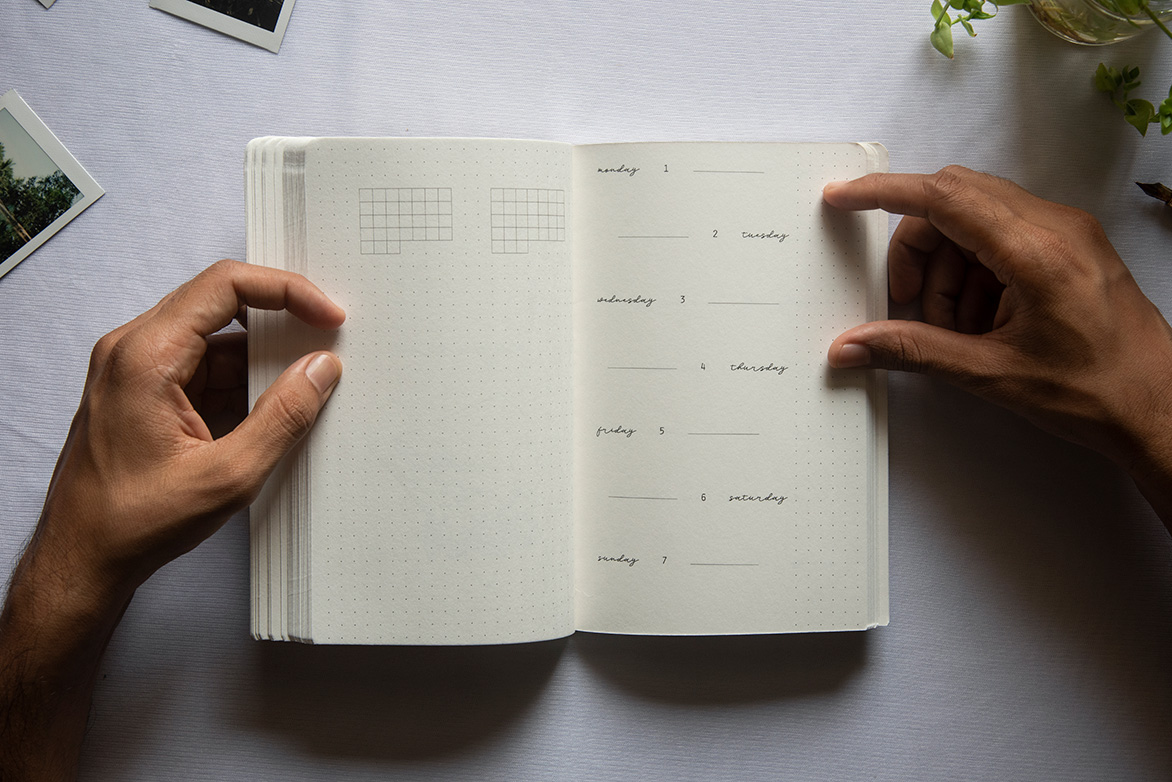The Importance of Planning in Order to Declutter
Keeping one’s life in order can feel like a juggling act. The next ball is speeding towards you as quickly as you move to catch one — finances, family obligations, work, or fun with friends. Unfortunately, some balls will fall to the ground: weeks of neglecting sleep, eating fast food instead of meal planning, and delaying with low-impact chores rather than deep work.
Rather than flinging life’s responsibilities into the air and hoping to catch them all, it’s best to use a planning framework to keep your life in order.
This blog will address the various criteria for genuinely organising and planning your life. Then we’ll go into how you may use them in all of your critical areas, including job, school, college, university, business, home, health and fitness, finances, and relationships.
Decluttering Your Mind & Space
While you may have been told to “clear your mind” to relieve stress in the past, this method isn’t actually about letting go of all your problems and ideas. Instead, it’s about practising mindfulness and non-judgmental observation of your thoughts.
Learning how to be mindful and observing your thoughts non-judgmentally can help you sleep better, have more productive downtime after work, be more focused, and be more creative. It’s even possible that the practice will benefit your relationships. As a result, devoting some time to mindfulness techniques is definitely worth it. Selecting a good planner is a great way to declutter your mind. A planner should have plenty of space – Space to write, space to doodle, space to think.

However, you shouldn’t just stop at decluttering your mind. Decluttering your physical space can work wonders too.
Granted, it can be difficult to let go of things. For instance, your beloved pair of jeans, those dusty books that have been on the shelf for years, or your childhood Hot Wheels collection. While it’s natural to want to keep sentimental goods or family treasures, decreasing and simplifying our possessions has a significant impact on our emotional well-being.
Decluttering your physical space can revitalise you, relieve negative emotions, and give you more physical and mental space. You may take control of your environment and free your mind to think about other things by organising your space. Cleaning up your area not only makes it appear nicer, but it can also help you relax. It’s only natural to feel anxious thinking about the overflowing laundry basket, the dirty dishes in the sink, or the mile-high stacks of paper at work.
The Need For Planning and Organising
Organising and planning help you complete your tasks correctly and avoid costly blunders. You may be more effective and productive by organising your work and preparing ahead. You can attain essential goals and objectives by being well-organised and making successful plans.
Key Points
The following are the main concepts to help you effectively organise and plan:
- Organizing and planning are two critical responsibilities of any job.
- Your productivity and efficiency are determined by how well you organise yourself, your work, your time, and all other areas of your job.
- You will be more efficient and successful if you are more organised.
- Effective planning enables you to meet essential objectives and obtain the desired outcomes.
- Planning also helps you to deal with change in the workplace and at work more efficiently.
The Importance of Planning and Organising
planning is imagining the outcomes that you want to achieve and determining the procedures required to get there — success!

We plan all the time! Just think about this for a second –
If you travel, you plan your trip.
If you are getting married, you plan your wedding.
If you throw a party, you plan the event.
If you want to make more money, you plan for it.
If you want to have a meaningful and happy relationship, then you must do some planning.
None of the aforementioned activities can be done without any form of planning.
Living a life of success filled with meaning, happiness and fulfilment is no different. Yet, most people neglect to plan their lives and then get disappointed and discouraged when they do not attain what they want. A good plan is less about getting things done and more about being purposeful with it.
Tips to Organise Your Life With A Simple Planner
Building a purposeful attitude starts with a shift in mindset, and the easiest place to work on your mindset is your journal. Set aside a few minutes every day to plan the tasks you wish to achieve. It only takes a few days to build a routine.
We understand that it’s not as easy as it sounds – taking the time to incorporate a planning routine in an already busy day. Also it can be hard to work with limited information, to make a future commitment that might not even work out the way you plan. So, what’s the way out?
Approach planning with an acceptance of uncertainty & find a method that works for you.
1. Identifying your planning method
A planning method is an approach that brings clarity to your thoughts. Freewriting, bullet journaling, lists oriented, doodling, scrapbooking, daily planning.. the list goes on! There is no right or wrong method; it’s about understanding what works for you.
2. Finding the right journal
Pick something that is simple and easy to look at, letting you focus on the things that matter most. For instance, a journal with blank pages is great for expressing a mood or emotion. If you feel like taking an organised planning approach, you can pick something with more structure like a planner. Size and paper quality are other things that you want to keep in mind.

While it helps to have your larger plans jotted down in one common place, having different journals for different things is a good way to keep your mind uncluttered.
3. Do a brain dump
Write down the things you wish to achieve and tasks to complete, just as they come to mind. Treat this as your master list and pick from here to map it onto your planner against a particular day or week or month. For example, grocery shopping for the weekly meal plan would be mapped to a particular day of the week, perhaps a sunday, preparing for a big office presentation on Monday could be mapped against a week prior to it and making vacation plans for December could be mapped against the months of October & November.
4. Prioritise
Identify your pain point. What stresses you out? What is it that needs to be given a structure in order to calm your nerves. You might want to tackle this head on or navigate slowly toward it, either way, this is a good place to begin, this is your starting point. Be honest with yourself and let go of judgements. Even if it is something simple like planning your meals, do it, if it brings clarity and focus to other important things.
5. Plan your typical Day
What would you do from sunrise to sunset if you were the absolute ideal version of yourself? Everyone knows that when the sun sets, you curl up on the couch with a bowl of popcorn and binge-watch a show. It’s all right to admit it! Just penning it down, makes it that much more real.
6. List Your Aspirations
Make a list of things you wish to be when you finish an “average day”. Things like “be a good listener” and “remain cheerful” would be on this list, but they are not to-do items. You might also make a generic list of things you wish to do more of, such as “exercise more” and “focus more on my marriage.”
7. Plan Your Typical Week
Weekly planning is a simple & effective way to get your life organised. It is popular among planner pros and newbies alike as you can assign tasks to each day, while seeing the whole week at a glance. Also makes it easier to include time for self care or decluttering activities a few times a week and track your progress.
8. Group Like-Items Together
Be honest with yourself about what you think you’ll be able to do and make practical achievable plans. Use the items on the other page of your planner to motivate you. For example, you might want to enter “birthday gift” under errands if you are going to a birthday party.
9. Organise Your Life Daily Using Time Chunks
Your day should naturally divide up into pieces of time after you’ve written down your calendar items. The period between waking up and getting yourself to work; There’s a slice of time during your lunch break or after work before dinner – you can utilise this free time to do productive tasks.

10. Be kind to yourself
The most important thing to remember throughout your planning journey is never to beat yourself up over an unachieved task. Anything can be carried forward to the next day or next week, as long as you don’t lose focus and intention. Planning is a way to help you declutter, it should never become a reason for stress itself.And that’s it! Now that you have all the tools in your arsenal to plan your days like a pro, it is just about being consistent and following through. Remember, ‘a goal without a plan is just a wish!’ So put your planning into overdrive by using the Decluetter planner.We wish you good luck and would love to hear how this goes for you.






